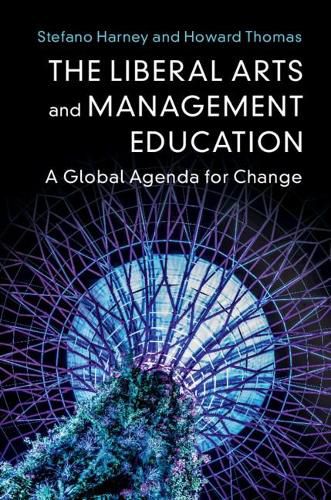Readings Newsletter
Become a Readings Member to make your shopping experience even easier.
Sign in or sign up for free!
You’re not far away from qualifying for FREE standard shipping within Australia
You’ve qualified for FREE standard shipping within Australia
The cart is loading…






Calling for the transformation of undergraduate education, Thomas and Harney argue that the liberal arts should be integrated into the traditional management curriculum to blend technical and analytic acumen with creativity, critical thinking, and ethical intelligence. In describing their vision for a new liberal management education, the authors demonstrate how a holistic pedagogy that does not sacrifice one wealth of learning for another instead encourages participation and integration to the benefit of students and society. Global in sweep, the book provides case studies of successfully implemented experimental courses in Asia and Britain, as well as a speculative chapter on how an African liberal management education could take shape, based on African-centred principles and histories. Finally, the book argues that the stakes of this agenda go beyond mere curricular reform and pedagogical innovation and speak directly to the environmental, business, political, and social challenges we face today.
$9.00 standard shipping within Australia
FREE standard shipping within Australia for orders over $100.00
Express & International shipping calculated at checkout
Calling for the transformation of undergraduate education, Thomas and Harney argue that the liberal arts should be integrated into the traditional management curriculum to blend technical and analytic acumen with creativity, critical thinking, and ethical intelligence. In describing their vision for a new liberal management education, the authors demonstrate how a holistic pedagogy that does not sacrifice one wealth of learning for another instead encourages participation and integration to the benefit of students and society. Global in sweep, the book provides case studies of successfully implemented experimental courses in Asia and Britain, as well as a speculative chapter on how an African liberal management education could take shape, based on African-centred principles and histories. Finally, the book argues that the stakes of this agenda go beyond mere curricular reform and pedagogical innovation and speak directly to the environmental, business, political, and social challenges we face today.